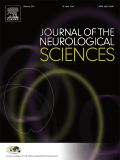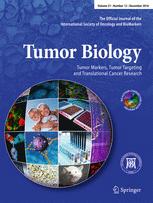 Back in April, Springer retracted a record number 107 papers from Tumor Biology after uncovering evidence they were subject to fake peer reviews. But it appears that the Tumor Biology sweep was only part of the story.
Back in April, Springer retracted a record number 107 papers from Tumor Biology after uncovering evidence they were subject to fake peer reviews. But it appears that the Tumor Biology sweep was only part of the story.
During the Tumor Biology investigation, Springer found evidence that the “peer review process was compromised” in a dozen papers on brain cancer published in another journal. The 12 Molecular Neurobiology retractions have trickled in over the past year or so, published before and after the Tumor Biology sweep.
A spokesperson at Springer confirmed that the 12 retracted papers in Molecular Neurobiology were related to the Tumor Biology retractions for fake peer review: Continue reading Springer purge of fake reviews takes down 10+ more neuroscience papers
 In the fall of 2015, out-of-work stem cell biologist Mavi Camarasa decided she had waited long enough. It had been three years since she and a colleague were, best they could tell, the first to successfully correct the most common cystic fibrosis mutation in stem cells derived from a patient.
In the fall of 2015, out-of-work stem cell biologist Mavi Camarasa decided she had waited long enough. It had been three years since she and a colleague were, best they could tell, the first to successfully correct the most common cystic fibrosis mutation in stem cells derived from a patient. 
 A diabetes journal has issued two notices of concern for papers co-authored by a researcher who took another publisher to court after it did the same thing — but
A diabetes journal has issued two notices of concern for papers co-authored by a researcher who took another publisher to court after it did the same thing — but 





 Springer is
Springer is